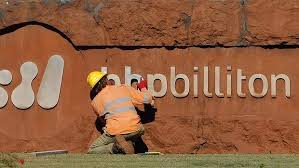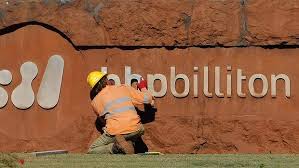
The CEO of the world's largest miner BHP Billiton, Andrew Mackenzi, is in a dilemma as the company sits on an $11 billion cash pile and the market watched to see what is done with the money. It would also be a critical test of the ability of Mackenzi to invest during the industry's worst downturn in decades.
The mining giant said repeatedly that it would consider "opportunities" - cranking up the rhetoric, even as it warned of prolonged price pain, announcing plans this week to slash its dividend and shore up its balance sheet.
Former BP executive Mackenzie is not an empire builder by nature but is one of a generation of conservative mining bosses brought in after years of breakneck growth. He has not done a single major acquisition since he took the reins at BHP in 2013.
Bankers say some of the world's most coveted copper mines could become available - testing Mackenzie's deal-making mettle with indebted miners Anglo American and Freeport-McMoRan under unprecedented strain.
"It's not quite a war chest, but who knows what might come under distress in this sort of environment," the BHP boss told investors and analysts, when asked about the $11 billion.
BHP's tough requirements for an adequate return can be met by only a few deals and only one metal – copper. As existing mines age and new ones are found in increasingly difficult locations, copper is the most sought-after industrial metal.
Some of industry’s largest players are already facing calls from some quarters to make the best of a terrible market which are being fueled by the buy-or-wait debate.
"This is exactly what BHP should be doing. Using their strength of balance sheet to make bottom of cycle acquisitions and during boom times pay out most of their earnings - rather than buy and or invest at top of cycle," said Paul Xiradis, chief investment officer of Australia-based Ausbil Investment Management, which owns BHP stock.
Accused of making ruinous acquisitions and - worse - pursuing costly mine projects at the top of the market, fuelling over-supply when the market could least afford it, the world's mining giants were heavily criticized in the years after the 2008 financial crisis.
However steep spending cuts have left BHP, a mining behemoth, pumping in enough cash to stay in business say analysts is not enough to grow. This has brought the question of whether to wait or to buy firmly on the table: is the time now, or is it a decade too soon?
"(BHP) have a strategic dilemma," one industry banker said.
As part of efforts to cut debt, all the assets have been put on the block by Anglo, Freeport and Glencore. However while some are not copper, others are too small or in risky jurisdictions once seen as pioneering and now frowned upon and hence advisers say none of those meets BHP or indeed chief rival Rio Tinto's requirements for now.
Bankers say better mines could come up if Anglo and Freeport fail to find buyers for what they have got for sale now.
"I think frankly that BHP and Rio are still trigger shy. But we are seeing them on the edges - they are starting to explore whether this makes sense," a second industry banker said.
(Source:www.reuters.com)
The mining giant said repeatedly that it would consider "opportunities" - cranking up the rhetoric, even as it warned of prolonged price pain, announcing plans this week to slash its dividend and shore up its balance sheet.
Former BP executive Mackenzie is not an empire builder by nature but is one of a generation of conservative mining bosses brought in after years of breakneck growth. He has not done a single major acquisition since he took the reins at BHP in 2013.
Bankers say some of the world's most coveted copper mines could become available - testing Mackenzie's deal-making mettle with indebted miners Anglo American and Freeport-McMoRan under unprecedented strain.
"It's not quite a war chest, but who knows what might come under distress in this sort of environment," the BHP boss told investors and analysts, when asked about the $11 billion.
BHP's tough requirements for an adequate return can be met by only a few deals and only one metal – copper. As existing mines age and new ones are found in increasingly difficult locations, copper is the most sought-after industrial metal.
Some of industry’s largest players are already facing calls from some quarters to make the best of a terrible market which are being fueled by the buy-or-wait debate.
"This is exactly what BHP should be doing. Using their strength of balance sheet to make bottom of cycle acquisitions and during boom times pay out most of their earnings - rather than buy and or invest at top of cycle," said Paul Xiradis, chief investment officer of Australia-based Ausbil Investment Management, which owns BHP stock.
Accused of making ruinous acquisitions and - worse - pursuing costly mine projects at the top of the market, fuelling over-supply when the market could least afford it, the world's mining giants were heavily criticized in the years after the 2008 financial crisis.
However steep spending cuts have left BHP, a mining behemoth, pumping in enough cash to stay in business say analysts is not enough to grow. This has brought the question of whether to wait or to buy firmly on the table: is the time now, or is it a decade too soon?
"(BHP) have a strategic dilemma," one industry banker said.
As part of efforts to cut debt, all the assets have been put on the block by Anglo, Freeport and Glencore. However while some are not copper, others are too small or in risky jurisdictions once seen as pioneering and now frowned upon and hence advisers say none of those meets BHP or indeed chief rival Rio Tinto's requirements for now.
Bankers say better mines could come up if Anglo and Freeport fail to find buyers for what they have got for sale now.
"I think frankly that BHP and Rio are still trigger shy. But we are seeing them on the edges - they are starting to explore whether this makes sense," a second industry banker said.
(Source:www.reuters.com)





